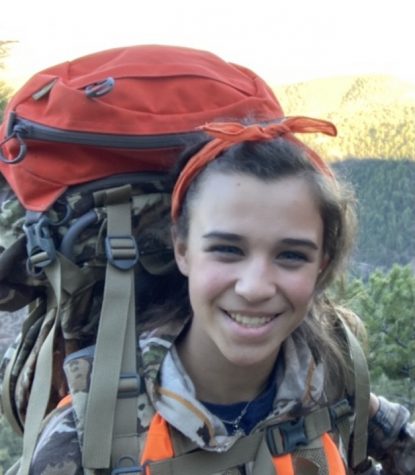Identity

January 26, 2022
What is Identity and Why is it important:
Identity is defined as “the fact of being who or what a person or thing is.” In the case of sexual and gender identity, we are talking about “discovering who you are or discovering how you see yourself.” Identity is important because knowing who you are and being comfortable with yourself can make you happier than you would be otherwise. We interviewed 6 people about their gender and sexual identity:
Interview Questions:
- How did you discover your identity?
- How do you think it affects you and the people around you?
- Did the people around you react to it?
- How did the people around you react?
- Do you wish they reacted differently?
- Did you expect them to react like that?
Answers:
- Sexual Identity:
-
- Ronan: “I am bisexual, I think i discovered it when i found out what bisexuality was because i was always like I like girls I like boys I like girls back and forth until my sister told me about it, I think that it really does not affect the people around me, and my mom and dad never really cared but a lot of people don’t know that I am bi so I think it kinda surprises them when they find out.”
- Lou: “I am pansexual, that is where you feel attraction to all genders no matter what gender identity, or biological sex they are. The way I learned about pansexuality was when I was scrolling on TikTok and heard this definition of this word I had never heard before, I thought to myself “that’s how I’ve felt for like ever” I didn’t really think there could be a name for it. I did a lot of research on the term and realized it was how I felt. I believe that people around me aren’t that affected by it and it didn’t really matter who I liked, though more when it comes to gender identity do people end up confused and questioning me.”
- Hollis: “My sexualities are gay/asexuality. How I found out was I started thinking about my friend all time and I started having dreams where I can see us as husbands and ya. When I would tell [people] about this it would never work out but I have found someone so now I’m happy. Yes the people around me did react but not that much anymore(that much). Most people were fine with it and the others thought I was going to try to get them to date me, my parents were 10000% on my side. I wish that the people that were weirded out by me would just be fine with it like what’s wrong with being lgbtq+ like so many people are, it just makes no sense to me. Sorry for ranting a little, yeah I know people would be grossed out and others would be fine but still like, why?”
- Gender Identity:
-
- Anonymous: My pronouns are they/them and he/him. I honestly always knew that I wasn’t fully “female” because I always felt like something was missing. When I discovered the LGBTQIA+ community, I started to dig deeper into what my gender identity might be. I started out as genderfluid, and then went through a whole lot of other options, including transgender, demigirl, and non-binary. I honestly still feel like some tiny piece is missing, but there is a lot more security around my identity than there was before. I am now securely genderfluid. I think that it is sometimes hard for the people around me, because a lot of them don’t know. And honestly, that’s really hard. And even when you know that they don’t know about you, it still stabs you through the heart when they accidentally misgender you or deadname you. My friends and teachers were all super supportive of me when I came out, but my parents…. not so much. My friends were super supportive, and it took them maybe 5-7 days to get my preferred name down. They are all super supportive, and always apologize if they accidentally misgender me because they forgot to look at my bracelet. During quarantine too, they were so supportive of me, and always listened to my random, chaotic rants about “help I have no idea about how to figure this out…” among other things. My teachers were also super supportive. I kind of figured it out in the middle of the beginning of the year, and it was RIGHT after teachers were starting to get the hang of names. When I told them, they were all super supportive, and said that they were sorry if they called me the wrong name. They all try really hard to remember, and I’m so grateful for them. I honestly kind of expected my friends to accept me, and I was a little nervous about my teachers, but I figured that they would be good with it. I knew that my sister was going to be pretty chill, because she’s part of the community too, and she was. I was just kinda like “hey, how’s your gender identity going” and she was like “good, hbu?” and I was like “I’m genderfluid, preferred name [preferred name], I have pronoun bracelets” and she was like “cool cool, I figured”. I was honestly expecting a better reaction from my parents. I wish that my mom could have seen it from my side, because she was kind of like “well, I love and accept you, but I can’t call you [prefered name] or use your preferred pronouns.” And honestly, that really hurt. And I don’t think that she knows how much that affects someone, who had to work up the courage to come out, and then for you to not really accept them. It was really hard for me to hear that she didn’t really accept me, even though she said that she did. She also said that “If you still feel like this in a few months, maybe I’ll reconsider it.” Honestly, that is also really hard to hear. That’s basically saying to your child “it’s just a phase” which is one of the worst things that you can say to someone who just came out to you. It makes me feel like there’s something wrong with me, and that I shouldn’t be this way, because “it’s just a phase”. And even though I know that isn’t true, and I know that I’ve been this way my entire life, it’s hard to hear. I hope that anyone else who ever comes out and has a “supportive” family who really actually doesn’t accept them knows that they are loved and accepted by their fellow people in the community <3”
- Lou: “When people ask my pronouns I say I use all of them leading them to thinking I have a preference for what I use and that it changes every day, my take on gender fluidity is that any pronouns can be used and they all feel right. Other people don’t take the term in the same way I do but it’s the way I take it. When I told the people around me some were supportive to where it felt they were over exaggerating how they actually felt. My family was super chill about it when I told them, they didn’t really care. I feel like everyone’s reactions were valid and I just kinda wish that everyone was more chill about it when I said something. I expected them to not really care, but only about half of the reactions were as chill as I wished they were.”
- Anonymous: “My pronouns are he/him/they! How I discovered my identity was when I was really young, And wasn’t feeling comfortable with who I was. Well, I don’t know if it affects the people around me, But it definitely Affects me. The reaction of the people around me was somewhat expected. All of my friends supported me, But I haven’t told my parents because they aren’t Supportive.”
Glossary:
- LGBTQ+ – An acronym for “lesbian, gay, bisexual, transgender and queer”.
- Gender Identity – One’s innermost concept of self as male, female, a blend of both or neither – how individuals perceive themselves and what they call themselves. One’s gender identity can be the same or different from their sex assigned at birth.
- Bisexual – A person who is attracted to female and male. Abbreviation, “bi”
- Coming Out – The process in which a person first acknowledges, accepts and appreciates their sexual orientation or gender identity and begins to share that with others.
- Cisgender – A term used to describe a person whose gender identity aligns with those typically associated with the sex assigned to them at birth.
- Ally – A term used to describe someone who is actively supportive of LGBTQ people. It encompasses straight and cisgender allies, as well as those within the LGBTQ community who support each other.
- Gay – A person who is attracted to members of the same gender. Men, women and non-binary people may use this term to describe themselves.
- Gender dysphoria – Clinically significant distress caused when a person’s assigned birth gender is not the same as the one with which they identify.
- Gender-fluid – A person who does not identify with a single fixed gender or has a fluid or unfixed gender identity.
- Pansexual – Describes someone who has the potential for emotional, romantic or sexual attraction to people of any gender though not necessarily simultaneously, in the same way or to the same degree.
- Asexual– The lack of sexual attraction to others.
Cites: https://www.thewisefamily.com/the-importance-of-identity/



Mark Rokhlenko • Feb 1, 2022 at 10:23 am
Hey guys, great article! It’s great that you are giving a public platform for these less known groups to express their voices and opinions. I also really appreciate the fact that you wrote about this at all as this is (unfortunately) still a controversial topic. I hope that you continue this into a series of exploring identity and how people of your age interact with this vastly open landscape. However if this were to be turned into a series, I would include interview question from heterosexual people as well. Heterosexuals do not face the same issues of identity that members of the LGBTQ community face, but they still represent a large portion of the population and if you want to create a series exploring identity, you need to draw from all walks of life.
I would also encourage you to search out people who you disagree with. I have seen that this newspaper is accepting of all genders and identities (yay!!!) but I am positive that there are people both at Flagstaff and in the community that disagree with you. Maybe post a structured calm debate on your page or really just hear their view in a Q&A. Their view may be wrong, but if you want to change the world, you need to know how you opponents to change think.